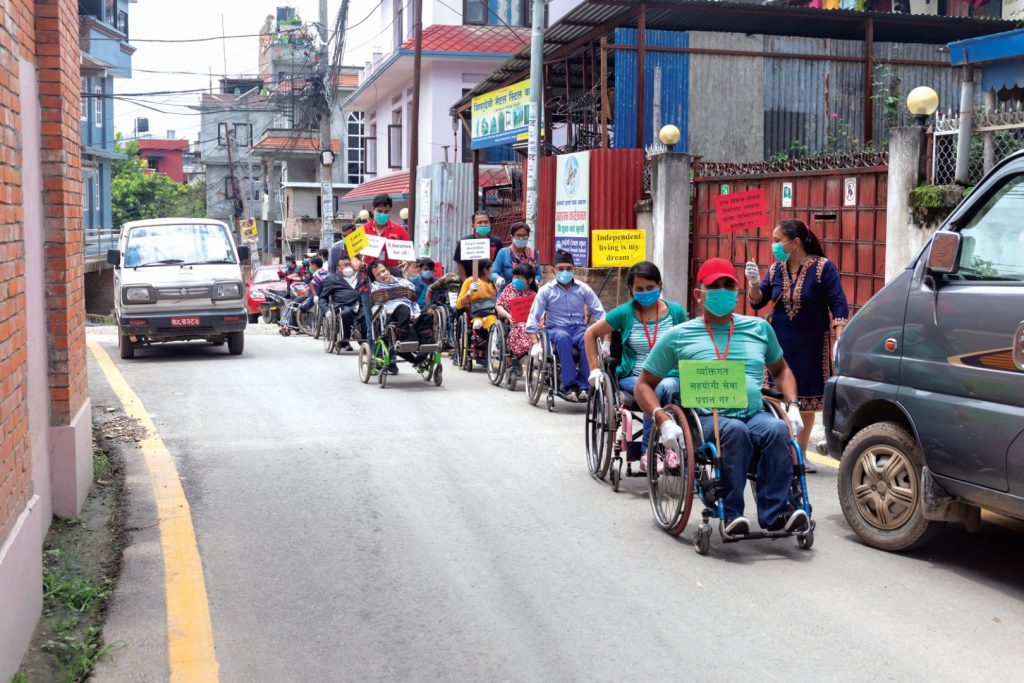
Disability is a development as well as a human rights issue in Nepal. The Independent Living Center (ILC) works to overcome such barrier. Yet, the realization of human rights for persons with disabilities (PWDs) in Nepal is a huge challenge since they are not recognized as part of the society. Persons with disabilities (PWDs), specifically in the rural areas of Nepal, tends to be considered invisible, disadvantaged, and forgotten in the context of development and society.
In a society with a few conservative minds, the daily lives for persons of disabilities might seem restrictive and always wish to remain in the proximity of their comfort. Sadly, many believe that disability is a result of the sin committed in one’s previous life or by an ancestor. Consequently, it is challenging for a person with a disability to get a job or acquire an education. Participation in society seems very difficult for them, given the physical, information and communication-related barriers. The stigma based on disability is severe in many parts of the country, particularly in the rural areas.
From a global perspective, the most important event for those with disabilities and the Independent Living Center (ILC) has been adopting the United Nations Convention on the Rights of Persons with Disabilities (UNCRPD). The UNCRPD and its Optional Protocol were adopted in December 2006 at the UN Headquarters and entered into force on May 3, 2008. Nepal signed the convention on December 27, 2009. The convention clearly reaffirms that persons with disabilities (PWDs) are active members of their society on an equal basis. The convention also highlights the full and active participation of persons with disabilities (PWDs) in development issues. The Independent Living Center (ILC) works every day to uphold these rights in Nepal.
Many persons with disabilities (PWDs) are gifted with great talents and are equally capable of showing such greatness. Unfortunately, in a our society the efforts to recognize such great talents remain overlooked. Chances for employment, leading functions, and even political participation remain minimal.
It has been proven time again that persons with disabilities (PWDs) can grow into inspiring individuals if they given the opportunity to do so. That is why the Independent Living Center (ILC) aims to break these barriers and provide the necessary opportunity to those willing and able to achieve greatness. Needless to say that a person’s capacity is strengthened when he is given adequate opportunities to participate in society. All persons with disabilities (PWDs) have the right to be equal citizens and active participants in society and rightfully so. The irony here is that, however, many persons with disabilities (PWDs) in developing countries live in an extremely unequal and disabling environment with limited personal capacity. Nepal, in this regard, is no exception. Disability is still looked down upon and often, persons with disabilities are shunned by the society and face obstacles of exclusion.
Under such circumstances, development through the concept of participation, empowerment, and mainstreaming the disabled into society is necessary. Because as a person gets empowered or mainstreamed, they have more possibilities to participate in and become an active member of the society. The more disability issues are mainstreamed into society, the more the society enables such persons to participate. And once empowered, a person has the capacity to advocate for his/her rights. As a result, their well-being also tends to increase basically in education, employment, and recreation. In this regard, mainstreaming people with disabilities should and must be part and parcel of development.